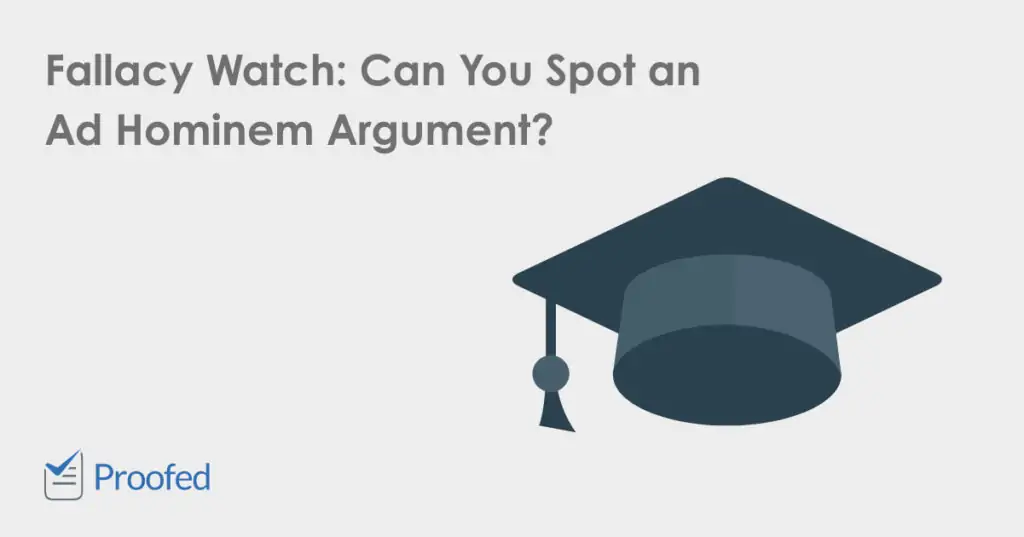Ad hominem is a Latin term meaning ‘against the person’. As such, an ad hominem argument is an attack on the person you’re arguing against. But why are ad hominem arguments considered bad practice in academic writing? And how can you avoid this fallacy in your work? Let’s take a look.
What Is an Ad Hominem Argument?
As mentioned above, an argument is ‘ad hominem’ if it targets a person rather than their ideas. In other words, we make an ad hominem argument if we ignore what someone says and focus on something about them as a person instead, such as their appearance or personality. For instance:
Socrates’ ideas on beauty must be wrong because he was so ugly.

This argument is obviously wrong, because someone’s appearance does not affect the validity of their ideas. But the same would be true if we had attacked Socrates for being stupid, selfish or smelly. The fallacy here is focusing on Socrates the person, not the arguments he makes.
It isn’t always this easy to spot an ad hominem argument, though, as sometimes the ‘attack’ against the person may seem relevant to the situation. For example, we could write:
Jones (1998) claims that morality is based on intersubjective agreement. However, prior to his life as a philosopher, Jones was convicted of common assault on two occasions, which may lead us to question his commitment to the moral life.
Here, we are contrasting Jones’ intellectual claim about morality with his real-life behaviour. On the surface, this might seem reasonable. And arguments that focus on a person’s character are common in many areas of life due to their rhetorical power (e.g. political attack ads).
Find this useful?
Subscribe to our newsletter and get writing tips from our editors straight to your inbox.
But in academic writing, it’s vital to focus on arguments and evidence. Consequently, we need to separate the argument we’re discussing from the character of the person who advanced it.
In the case above, then, we’d need to look at arguments for and against the intersubjectivity of morality. Whether Jones’ past behaviour could be classed as ‘moral’ itself is irrelevant to this problem.
How to Avoid Ad Hominem Arguments
In academic writing, ad hominem arguments miss the point.
More specifically, if you attack the person rather than what they say, it could seem like you have missed the point, as you won’t be able to demonstrate your understanding of the issues at hand.
To avoid ad hominem arguments in your work, then, you should always:
- Ignore the character of the person you’re arguing against unless it is 100% relevant to their argument (and thus your counterargument).
- Make sure you have fully understood what you are arguing against.
- Use the principle of charity and set out the strongest possible version of your opponent’s argument, as this will force you to think carefully about your counterargument.
- Remember that someone can be correct even if they are otherwise unlikeable. And even if you don’t like someone for personal reasons, you cannot dismiss their ideas without engaging with them first.
It can also help to get your work proofread. This will ensure your writing reads smoothly, allowing you to set out your arguments in clear terms.



